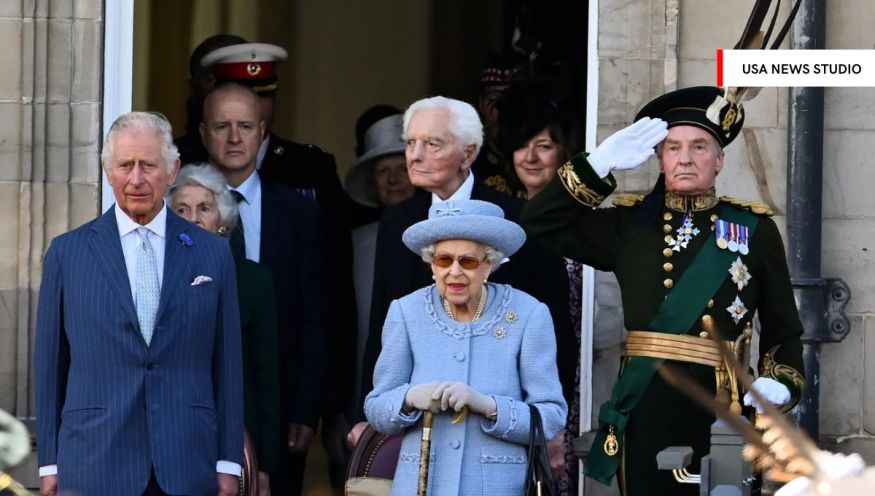Britain deploys gilded pomp and pageantry in charm, When politics and tradition intertwine, the result can be as dazzling as it is strategic. This week, the world’s eyes turn to Windsor Castle, where Britain deploys gilded pomp and pageantry in charm offensive to keep Trump sweet. From golden carriages to royal banquets, this visit is more than a display of heritage, it is a carefully planned move to strengthen ties with an unpredictable ally.
Why Britain Deploys Gilded Pomp and Pageantry in Charm Offensive to Keep Trump Sweet
The phrase Britain deploys gilded pomp and pageantry in charm offensive to keep Trump sweet captures the essence of this extraordinary event. Trump has always been vocal about his admiration for the British royal family and their unmatched ceremonial traditions. During a recent trip to Scotland, he said, “Nobody does it like you people in terms of the pomp and ceremony.” For Britain, this admiration is not just flattering, it’s an opportunity to win favor at a crucial diplomatic moment.
Windsor Castle as the Stage of Diplomacy

On September 17, Trump begins his two-day state visit at Windsor Castle, the world’s oldest and largest occupied castle. Military bands will play, guards on horseback will line the lawns, and royal salutes will echo across the grounds. Inside St. George’s Hall, a banquet fit for kings awaits, with tiaras glittering under chandeliers and cutlery placed with ruler-level precision.
This spectacular backdrop isn’t only about hospitality. It signals respect, recognition, and partnership, values Britain hopes to highlight as it navigates trade deals, defense agreements, and its role in global politics.
Trump’s Personal Connection to Britain
For Trump, the visit is deeply personal. His Scottish heritage, admiration for castles, and lifelong fascination with the monarchy make this more than just another diplomatic stop. Nigel Farage, a close ally of Trump, remarked, “The visit means a huge amount to him on a personal level.” That personal connection makes the charm offensive even more effective.
Beyond Ceremony: Strategic Politics

While headlines will celebrate the glittering images, the real story lies in the negotiations behind closed doors. Britain has secured a rare second state visit for Trump, a privilege usually denied to American presidents during their second term. Analysts like Professor Tim Bale argue this unusual move is a calculated attempt to keep Trump cooperative on trade and defense.
Indeed, Britain has already benefited. While India faces tariffs as high as 50% and European Union countries around 15%, Britain’s tariffs remain at just 10%. A new trade agreement, announced shortly after Starmer extended the state visit invitation, suggests the tactic has been working.
Trade, Defense, and Technology at the Heart of the Visit
The charm offensive extends beyond tiaras and trumpets. During this visit, the U.S. and UK are expected to finalize billions of dollars in deals, focusing on nuclear power research, artificial intelligence, semiconductors, quantum computing, and telecommunications. Executives like Nvidia’s Jensen Huang and OpenAI’s Sam Altman are part of the American delegation, underlining the high stakes of technological collaboration.
Defense will also dominate discussions. With the war in Ukraine dragging into stalemate, Britain hopes to secure Trump’s commitment to Europe’s security. Analysts suggest that “keeping him sweet” could ensure he doesn’t abandon Ukraine in its fight against Russia.
The Role of the Royal Family
King Charles, Queen Camilla, and other senior royals are central to this diplomatic theater. Their presence not only lends weight to the ceremony but also appeals directly to Trump’s admiration for monarchy. For him, being hosted at Windsor is a personal honor. For Britain, it’s a diplomatic tool designed to remind Trump of the country’s history, loyalty, and enduring partnership.
Why Pageantry Still Matters in Modern Politics

In today’s world of fast diplomacy, some might dismiss pageantry as outdated. Yet when Britain deploys gilded pomp and pageantry in charm offensive to keep Trump sweet, it proves that symbolism can carry as much power as policy. These images will be broadcast worldwide, shaping perceptions of U.S.-UK unity and reinforcing the message that their alliance remains strong.
FAQs About Britain deploys gilded pomp and pageantry in charm
- Why is Britain using such elaborate pageantry for Trump’s visit?
Because Trump deeply admires royal traditions and grandeur, Britain uses its ceremonial strengths to build goodwill and influence his approach to trade and defense. - Why is Trump’s second state visit unusual?
American presidents rarely receive state visits during their second term. This special honor highlights Britain’s desire to secure closer ties. - What political outcomes are expected from this visit?
Agreements on trade, technology, and defense are likely, including multi-billion-dollar investments in nuclear energy and artificial intelligence. - How does this visit affect Britain’s trade position?
Britain has negotiated lower tariffs than many other countries, a result some analysts attribute to this charm offensive strategy. - What role do the royals play in the visit?
The royal family embodies Britain’s traditions, using their presence and pageantry to impress and strengthen diplomatic relationships.
Final Thoughts
When history, tradition, and strategy align, the results are unforgettable. This is why Britain deploys gilded pomp and pageantry in charm offensive to keep Trump sweet. Behind the golden carriages and royal banquets lies a calculated plan to secure economic deals, reinforce alliances, and remind the world of Britain’s unique role on the diplomatic stage.
Disclaimer: This article is based on public information about President Trump’s state visit to Britain. It is intended for informational and analytical purposes only.







